Pets are more than just companions, they are essential parts of the family and have the power to enhance our lives in numerous ways. Science shows what an immensely positive and heart felt influence pets can have on the health and well-being of the whole family…but it can also work in the opposite direction when things aren’t going to plan with a pet’s behaviour.
In this blog we’ll explore how and why pets enhance our lives in extraordinary ways, and identify issues that can be challenging (with guidelines to prevent or treat these issues early).
Our Connection with Pets
Humans have an innate bond with pets that has been forged over thousands of years of co-evolution and domestication. This connection triggers the release of oxytocin, the “love hormone” which fosters feelings of affection, trust and happiness, along with endorphins which promote a sense of well-being. These feelings are akin to our feelings for our children and other family members – pets truly are our family!
Pets equally reap the benefits of their connection with us – they love us and see us as family right back!
Our bond with pets has emerged over tens of thousands of years – it’s important we protect and preserve it so we can continue to enjoy the multitude of benefits it can bring.
How Pets Contribute to Health and Wellbeing
Pets have a holistic impact on our health, offering benefits across physical, mental and emotional well-being. Research shows:
Physical Health Benefits
- Increased physical activity: owning a dog encourages regular exercise through walks, playtime and outdoor activities (on average 22 minutes more walking per day!)
- Lower blood pressure and cholesterol: pet ownership can lead to reduced blood pressure and cholesterol, decreasing the risk of cardiovascular diseases.1
- Cognitive function: pet ownership may be protective against cognitive decline in older adults.
Mental and Emotional Wellbeing
- Feeling good: Pets increase our dopamine, serotonin, endorphins and oxytocin levels, all the hormones that make us feel connected, loving and happy!
Stress reduction: pets have been linked to decreased levels of cortisol, resulting in lower stress levels. - Emotional support: pets offer unconditional love and companionship, they can be a source of comfort, empathy and stability, particularly for people experiencing anxiety, PTSD or loneliness, which is a major cause of many issues both mental and physical.
- Enhanced socialisation: pets can act as social catalysts, which can boost self-esteem, reduce feelings of isolation and improve overall wellbeing.
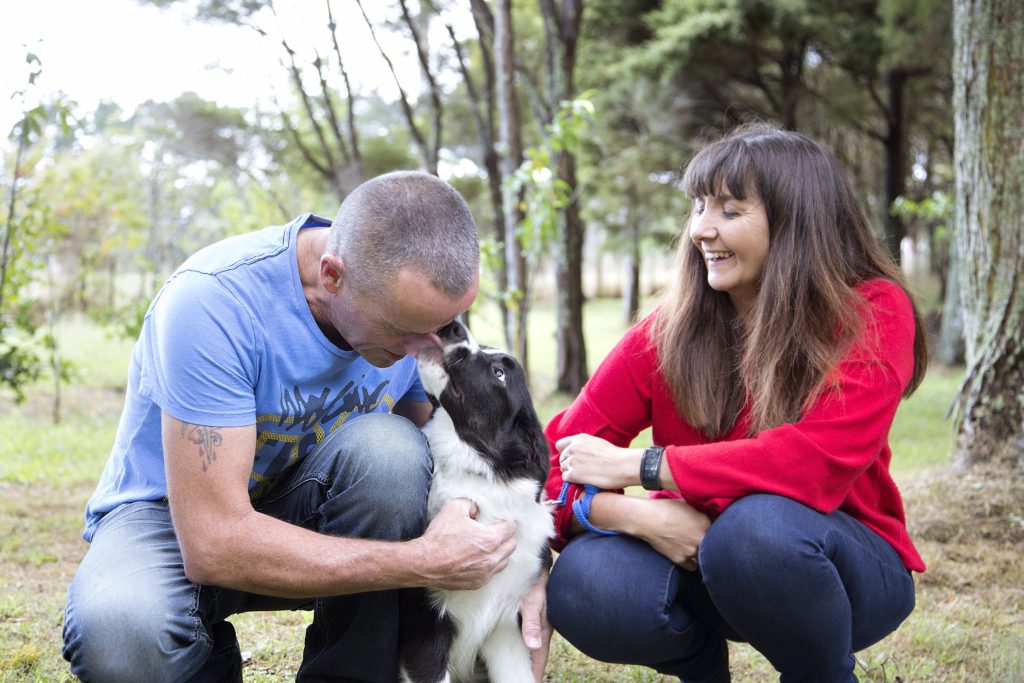
Benefits for Kids
- Strengthened immune system: growing up with pets can strengthen the immune system and decrease the risk of allergies and asthma.2,3
- Improved development: children growing up with pets may experience improved cognitive development, enhancing their problem-solving skills, empathy and emotional intelligence.
- Self-esteem: having a pet can boost a child’s self-esteem and sense of self worth.
The positive impacts on our health are immense so it’s worth protecting.
How Pets Can Negatively Impact a Family’s Health and Wellbeing
Unfortunately, an improvement to overall wellbeing isn’t a guaranteed effect of pet ownership – if things go wrong there can be so much stress, shame and guilt when it’s causing challenges in our lives.
Unfortunately, an improvement to overall wellbeing isn’t a guaranteed effect of pet ownership – if things go wrong there can be so much stress, shame and guilt when it’s causing challenges in our lives.
So when can having a pet cause a negative impact to health and wellbeing? And how do we avoid that?
Emotional Distress
This is the major one I encounter through my work. A pet’s behavioural challenges can have a severe effect on the family’s mental wellbeing. For example:
- A dog with separation anxiety: can result in feeling stressed and trapped at home, unable to leave your dog alone as they’ll be so severely distressed they will damage your home or soil, and even cause self-harm.
- A dog that barks persistently: can cause strained social relations with neighbours.
- A pet that destroys furniture or toilets inside: can cause immense frustration.
- A dog that’s aggressive: can lead to stress, anxiety and avoidance of social situations with your dog.
- A pet that is phobic: can create intense feelings of guilt that you can’t ease your pet’s anxiety.
People who struggle with their pet’s behavioural issues may feel an inability to cope, guilt that they don’t feel connected to their pet, and stress about how their pet might behave. It can seriously impact an entire household.
Your pet’s own health and wellbeing is also severely impacted by behavioural issues – they feel stressed, on edge, anxious, fearful and some even self-mutilate as a result.
If you are struggling, please know you are not alone in these feelings. It can be really tough.
Parasites & Bacteria
Animals can carry parasites that can be harmful to our health. Along with the usual suspects like fleas and worms, cats in particular carry a parasite called toxoplasma gondii, which can get into your brain and cause a condition known as toxoplasmosis – this can cause serious health problems, particularly for those who are pregnant or have compromised immune systems.
Physical Injury
Dogs are capable of causing significant physical harm when behavioural challenges are present. Hyper-excitable dogs can easily knock over children or less-stable adults by barrelling past or jumping up (my heavily pregnant daughter in law was once knocked off a high concrete step by a boisterous young dog – don’t worry, she and the baby were both okay). Big strong dogs that pull on the lead frequently cause wrist strain or shoulder injuries. Then there is the risk of attack to strangers or family members when dogs demonstrate aggression, fear or resource guarding – a scary notion.
Good planning and veterinary advice will help prevent these potential issues, it’s all treatable.
Making Sure Pets Have the Best Possible Influence On Our Lives
So as we can see – when it’s good, it’s very good and when it’s not, it’s really not.
My life’s mission is to help people create meaningful, joyous, stress-free relationships with their pets. Here are some ways you can set yourself up to experience all the benefits pets can offer.
Prevention is Better than Cure
If you’re in the thick of it with an older pet right now, this won’t be so helpful for you. But if you’ve got a new puppy or kitten in your life – you have an incredible chance right now to set yourself and your pet up for a really happy, easy life together.
Dogs and cats each have a critical Formative Period, where they learn key behaviours and how to understand the world. It’s when they learn who their extended family is, who’s a friend or foe, what experiences will be an expected part of their life, and how to cope with novelty and change. A puppy’s Formative Period for socialisation is from 1 – 4 months, a kitten’s from 1 – 3 months. During this time, your pet needs to be socialised in order to prevent issues like reactivity and aggression; and taught how to handle different experiences and situations (build emotional resilience), to prevent issues like separation anxiety and phobias.
Doing the right thing at the right time will make your journey with your pet SO much easier.
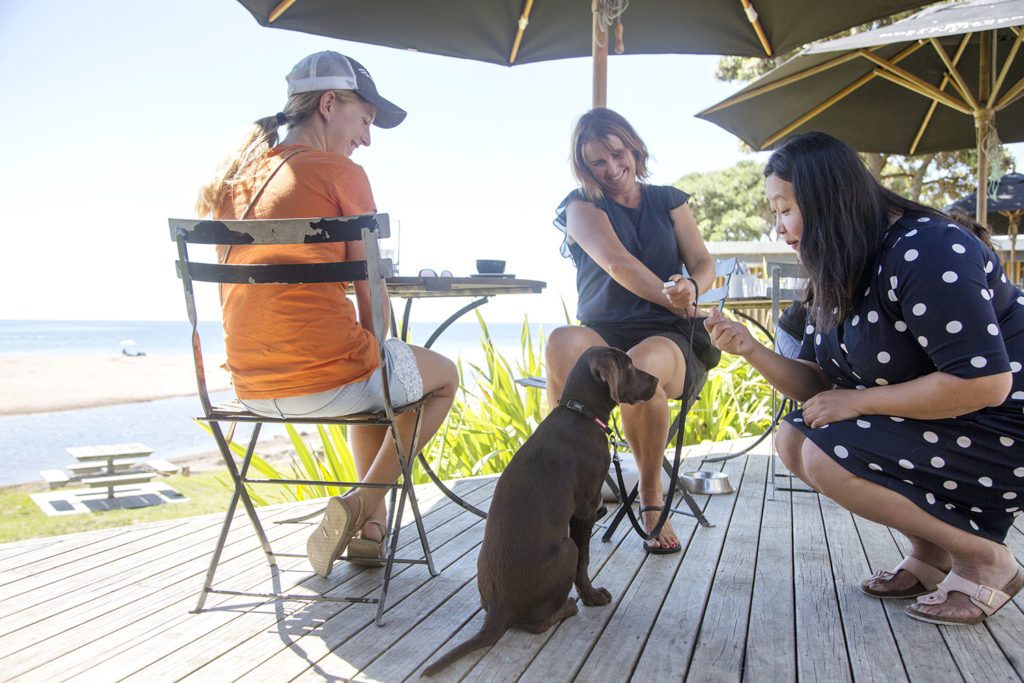
Get Support
If you’re struggling with challenging issues with your pet, is there any support you can get right now to help you manage it? E.g:
- Doggy daycare or pack walks are a great option to help alleviate separation anxiety or pent-up energy for hyperactive dogs
- Some training tools may help you manage difficult behaviours e.g. a Halti head collar can help with lead pulling, a muzzle may help you feel more at ease about taking a reactive dog out, and treat dispensing pet cameras like Furbo Dog Camera or Petcube Bites can be useful tools for monitoring and communicating with dogs that have separation distress
- Enrichment toys and activities are useful and ample exercise is critical
Training
The best thing you can do to create a stress-free relationship with your pet long-term, is invest some time and energy into working through behaviour issues. Your pet will also be much healthier and at ease if they get the correct training.
Join Family Health Diary for Access to Exclusive Content & Training Giveaways
Make sure you’re signed up to Family Health Diary – as a regular contributor, I’ll be sharing articles with training advice and exclusive training giveaways for those struggling with challenging behaviours.
Conclusion
Having a pet can be the best thing in the world, they bring so much to our lives – joy, love, companionship and health benefits! They’re part of our family and a great source of comfort, so it’s incredibly important that we look after this special relationship, so that everyone involved can reap the benefits.
Struggling With Your Pet?
Look out for exclusive giveaways coming up on Family Health Diary, where you can win training packages with me to help you transform your pet’s behaviour.






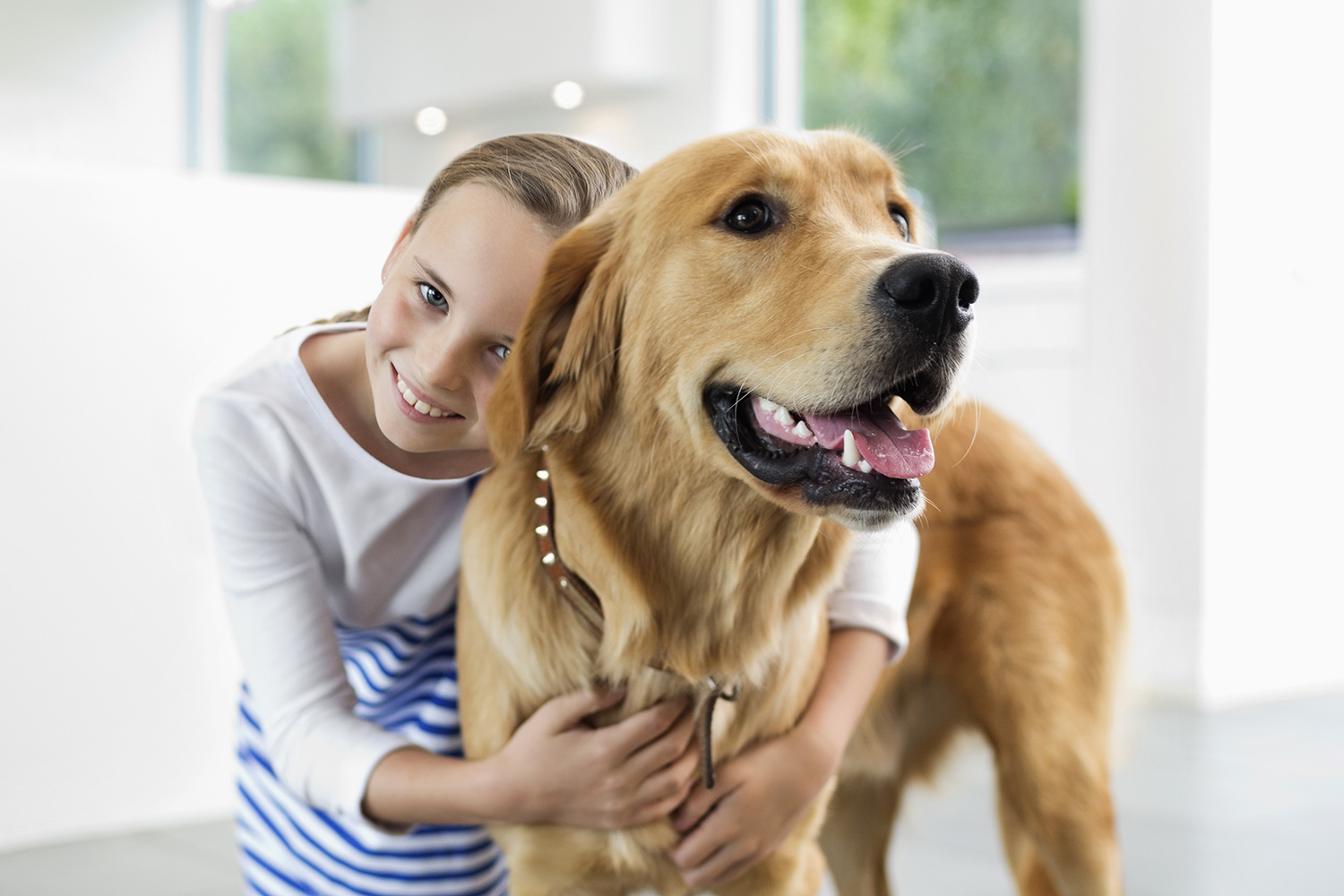

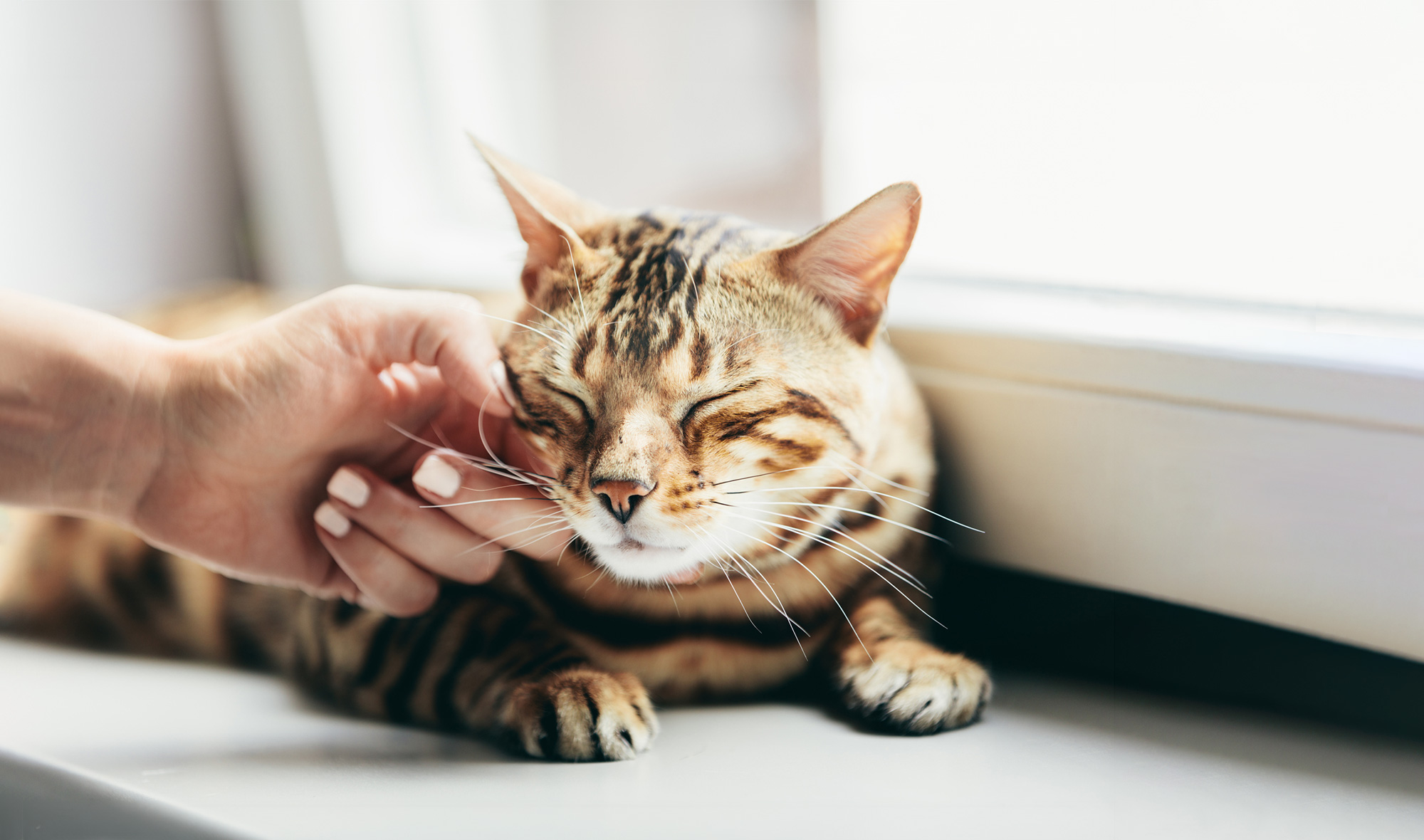
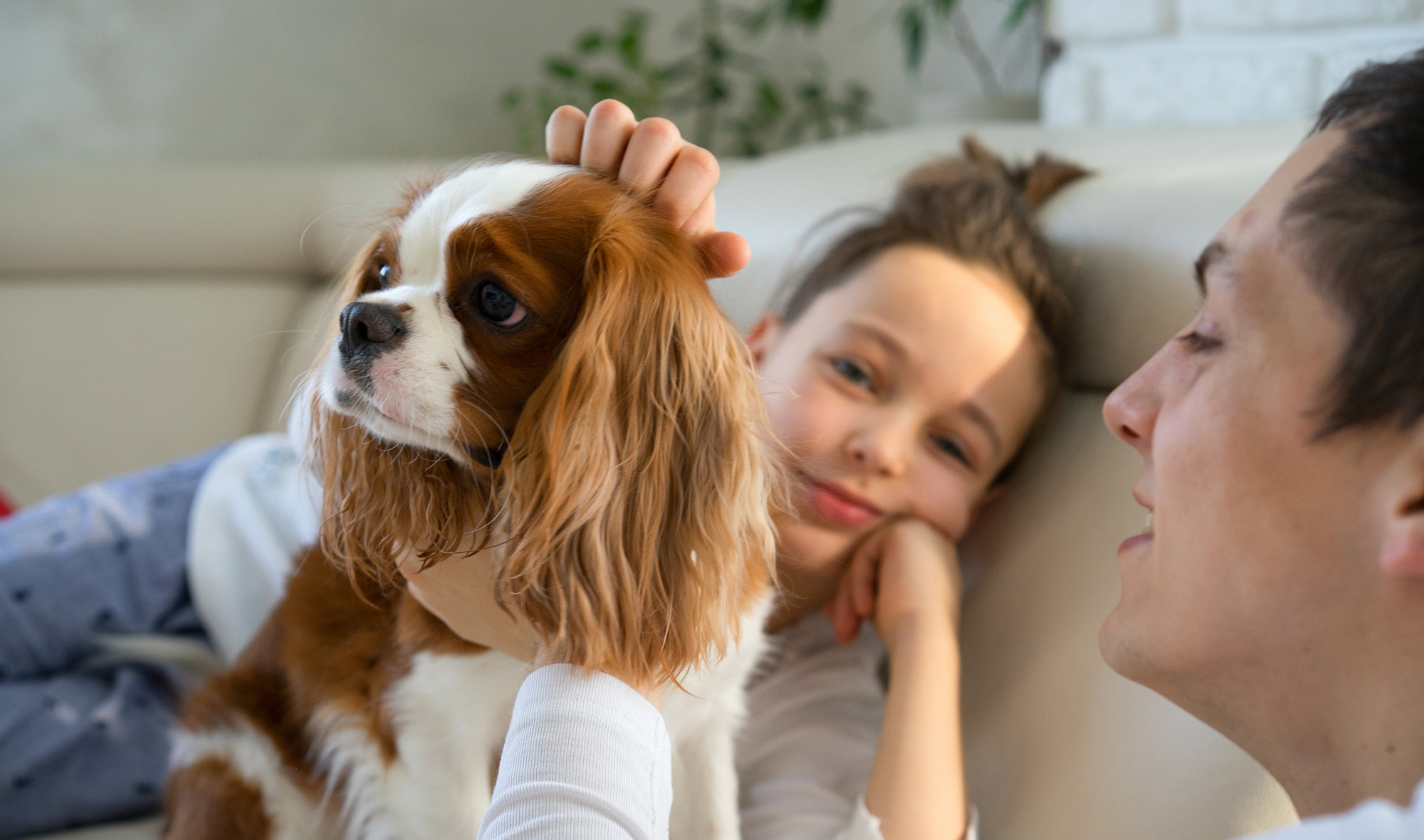






Community